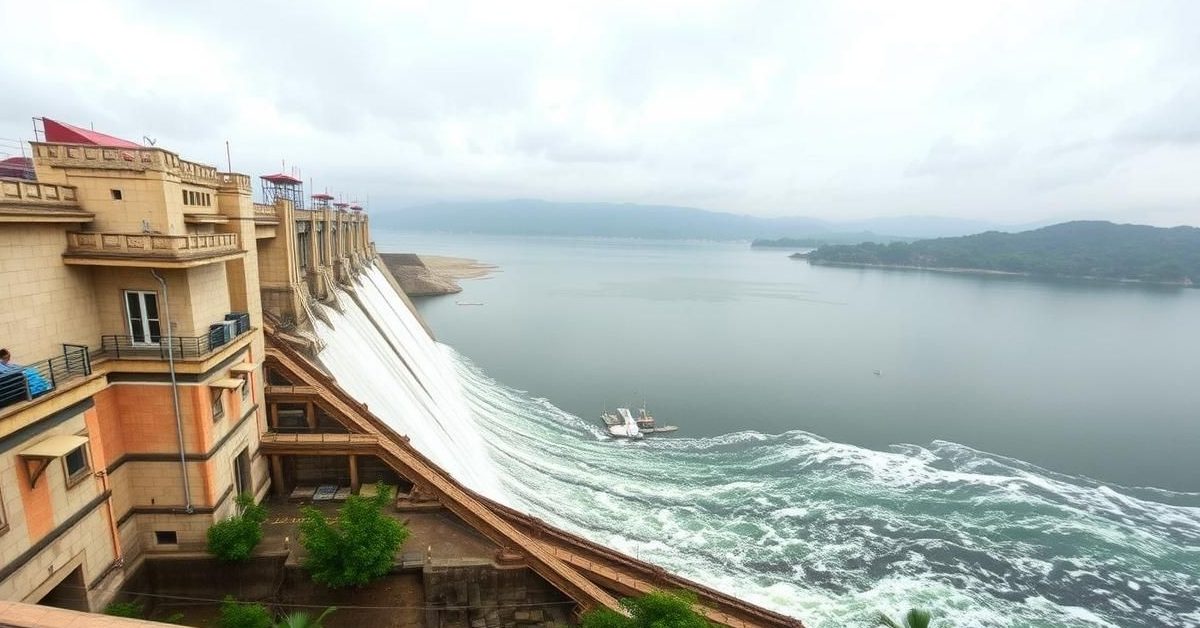India is currently navigating a complex landscape of domestic challenges and international relations, encompassing trade policy, defence manufacturing, environmental conservation, educational outcomes, labor rights, and legal precedents on surveillance.
US Trade Tensions and India’s Position
The global trade scene saw a fresh round of tensions with former US President Donald Trump announcing 25% tariffs on imports from Japan and South Korea. These tariffs, effective August 1, follow a reciprocal tariff pause that was set to expire soon.
Amid this climate, India is closely watching its own interim trade deal negotiations with the US. While an initial July 9 deadline was approaching, the US has indicated a possible extension until August 1, providing India more time to finalize an agreement.
Indian officials are working towards a “mini trade deal” that primarily covers goods, excluding more contentious areas like services and agricultural products. This flexibility could help India navigate rising US protectionism.
Boosting Indigenous Defence Manufacturing
Following recent strategic discussions, there’s a strong push to enhance private sector involvement in India’s defence manufacturing. The goal is to significantly increase the indigenous production of crucial items like artillery guns, missiles, and drones.
The government aims to streamline procurement processes, potentially reducing the average acquisition time from six years to about two years. This shift involves greater collaboration with private players, providing them with better visibility on future orders and easing procedural hurdles.
New models include public sector undertakings leading research and development, with production then handled by private companies. Revisions to the Defence Acquisition Procedure (DAP 2020) are also underway to further promote ‘Make in India’ and accelerate defence preparedness.
Great Nicobar Island Project Under Scrutiny
The Union Environment Ministry recently submitted a high-powered committee report to the National Green Tribunal (NGT) concerning the ambitious Great Nicobar Island mega infrastructure project. This vast project includes an International Container Transhipment Terminal, a greenfield international airport, a township, and a power plant.
Environmental concerns are central to the NGT’s review. The project, located on a biodiversity-rich island, raises questions about its impact on species such as the leatherback sea turtle, Nicobar megapode, long-tailed macaque, coconut crab, and vital coral reefs. The ministry has allocated Rs 80 crore for various conservation plans.
While the NGT has not halted the project, it continues to examine alleged environmental violations and deficiencies. The project’s strategic location, close to Sumatra, is seen as enhancing India’s maritime security, but careful balance with ecological preservation remains crucial.
Educational Outcomes: Post-Covid Learning Gaps Persist
The latest PARAKH Rashtriya Sarvekshan, a government school education assessment, reveals that learning levels in Class 3 are still below pre-Covid levels. While scores in language and mathematics improved compared to 2021 (the height of pandemic disruptions), they have not yet recovered to 2017 performance.
The survey assessed over 21 lakh students across Classes 3, 6, and 9, aligning with the National Education Policy 2020’s stages. Class 3 students struggled particularly with reading comprehension and basic mathematical concepts like geometric shapes and money transactions.
These findings highlight the ongoing challenge of foundational literacy and numeracy, indicating a need for continued focus and intervention to help young students catch up to pre-pandemic learning trajectories.
Trade Unions Call for Nationwide Strike
A forum of ten central trade unions and their affiliates has called for a “Bharat Bandh” to protest against what they describe as “anti-worker, anti-farmer and anti-national pro-corporate policies” of the government. Over 25 crore workers, along with farmers, are expected to participate.
The unions’ core grievances include the government’s alleged neglect of annual labour conferences and its push for four new labour codes. They argue these codes weaken collective bargaining and favour employers under the guise of “ease of doing business.”
Additionally, the unions point to increasing unemployment, rising prices of essential goods, decreasing wages, and cuts in social sector spending as reasons for their nationwide protest.
Phone Tapping Laws and Court Rulings
The legality of phone tapping in India is governed by the Indian Telegraph Act, 1885, the Information Technology Act, 2000, and the Indian Post Office Act, 1898. Interception is permissible under specific grounds such as “public emergency” or “public safety,” which align with “reasonable restrictions” on fundamental rights like privacy and free speech under Article 19(2) of the Constitution.
Recently, both the Madras and Delhi High Courts examined interception orders in bribery cases. While the Delhi High Court upheld an interception, the Madras High Court quashed a similar order, highlighting the complexities in interpreting whether economic offences constitute a “public emergency” allowing such surveillance.
These rulings underscore the ongoing judicial scrutiny required to balance state security interests with the fundamental rights of citizens in the digital age.
- India seeks flexibility in trade negotiations amid global tariff disputes.
- A major push is underway to increase private sector’s role in defence manufacturing.
- The Great Nicobar Project faces NGT scrutiny over environmental impact on sensitive ecosystems.
- Class 3 learning levels remain below pre-Covid standards, signaling persistent educational gaps.
- Trade unions are protesting government policies they claim are detrimental to workers and farmers.
- Recent court rulings highlight the complex legal interpretations of phone tapping and privacy rights.
These diverse issues collectively represent significant areas of focus for India’s policy-makers and civil society.















